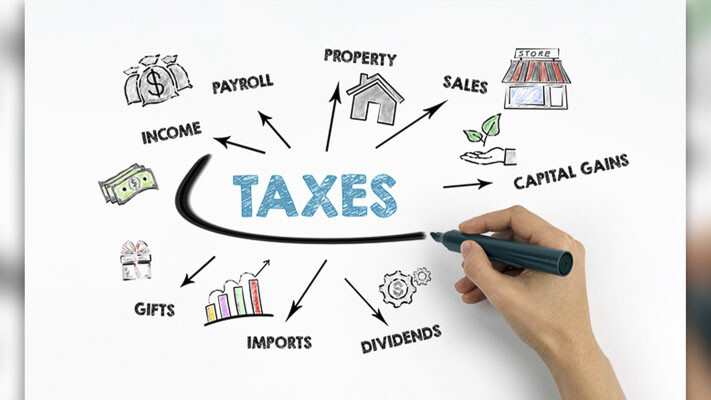
Elizabeth Hovde of the Washington Policy Center points out that while lawmakers talk about no new taxes passed this session, that’s not really the case
Elizabeth Hovde
Washington Policy Center
The 2023 Washington state Legislature adjourned Sunday. This week, many people are proclaiming that one of the successes of the session was that there were no new taxes passed.

Senate Democrats boasted in an infographic on Twitter, “No new tax increases and strong reserves.”
What they didn’t say was, “Broad-based tax relief, because of controlled spending and strong reserves of your tax dollars.” Tax relief in the form of reductions to the state’s portion of the sales or property tax would have been real success.
Not calling it success, but acknowledging that the session went better than it could have in regard to taxes, an Association of Washington Business press release explained things this way: “Compared to the record growth in state spending we’ve seen out of Olympia the last few years, this year marked an important change of course. Lawmakers passed a budget without raising general taxes, and they slowed the growth of spending.”
They slowed the growth of spending: With inflation eating individual and family budgets, an economic downturn and a continuing concern about the possibility of a recession, slowing the growth of spending is definitely better than a budget that raises general taxes. A news release from the Senate Democrats last week said the two-year operating budget will still add roughly $4.7 billion in new spending.
As Sen. Lynda Wilson, R-Vancouver, said in March, the state has more than enough money to cover all of the state government’s required expenses. “The surplus should still be around $4.5 billion even after factoring in the higher costs of maintaining state services and programs for the next two years. There is zero justification for new taxes of any kind,” she said, “especially since other tax increases approved in past years are still looming.”
The Republican leader of the Senate Ways and Means Committee pointed to an informative paper she wrote that tells what is still looming, after reminding that state spending in the past decade has grown at more than twice the rate of private-sector median wages.
Wilson outlines several new taxes and increases on their way to you in 2023, thanks not to the just-finished legislative session but past legislative activity. They include a series of new and higher taxes on income, property, sales and driving.
Among the new taxes is a long-term-care payroll tax I have been writing about for the last couple of years that is supposed to fund WA Cares. WA Cares is a mandatory social program for long-term care that won’t result in a program benefit for many Washingtonians paying into the tax.
Also gobbling more of workers’ paychecks is an increase to the tax rate for Paid Family and Medical Leave. That’s another mandatory social program many people don’t qualify for, use or need.
The payroll tax for PFML has doubled in its short lifetime. Don’t expect the LTC tax to stay at 58 cents for every $100 a worker makes. That begins in just 67 days. The program’s website has a calculator that lets you see how many new tax dollars you’ll be on the hook for year after year.
While lawmakers talk about no new taxes passed this session, it’s not going to feel that way.
Elizabeth Hovde is a policy analyst and the director of the Centers for Health Care and Worker Rights at the Washington Policy Center. She is a Clark County resident.
Also read:
- Letter: ‘There will be consequences’Hazel Dell resident Bob Zak criticizes Democratic lawmakers for advancing ESSB 5181, arguing it undermines parental rights and defies biblical principles.
- Op-Ed: La Center Schools — Committed to families and their childrenIn a public letter, the La Center School Board and Superintendent Peter Rosenkranz affirm their commitment to supporting families and honoring both state law and community values amid state-level scrutiny.
- Letter: Mayor blames others on homelessness problem in Vancouver while she has enabled a lawless encampment zoneVancouver resident Peter Bracchi urges city leaders to enforce laws and end permissive policies that have allowed unsafe encampments to overrun public spaces near the Share House.
- Letter: ‘Look it up for yourself’Camas resident Anna Miller encourages skeptics of Elon Musk’s claims about government waste to do their own research using official resources.
- Opinion: Defending the indefensibleNancy Churchill argues that Washington’s lawsuit against a sheriff cooperating with ICE reveals a deeper political agenda that puts public safety at risk.










